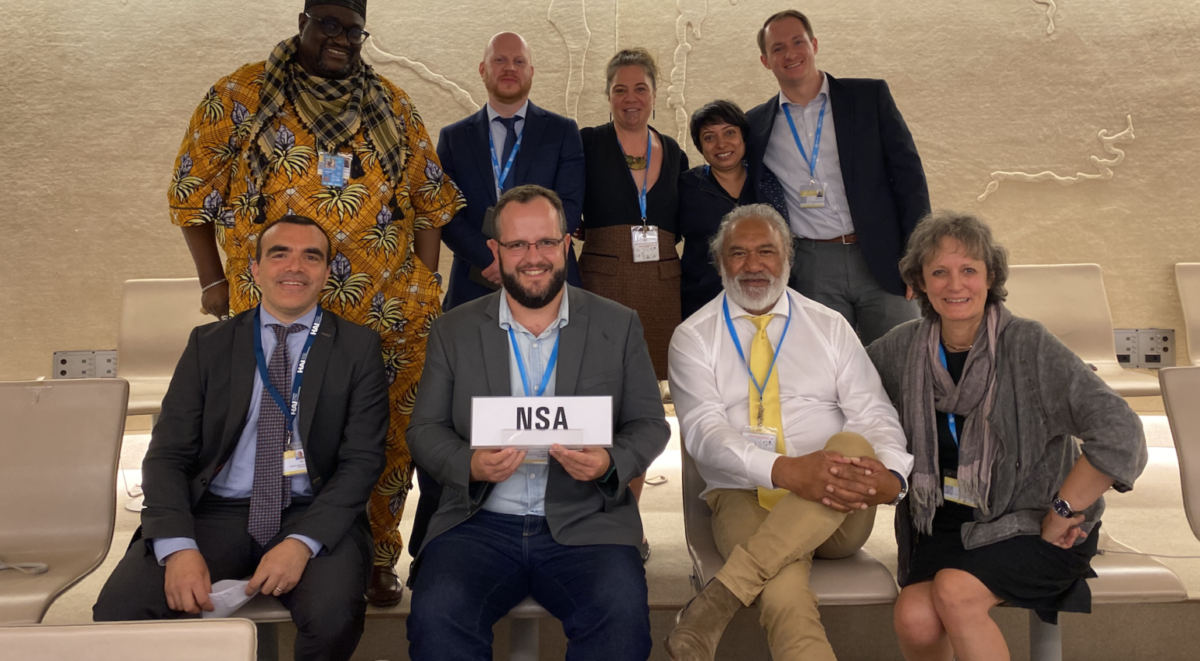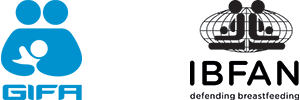
In emergency situations, nutrition and breastfeeding in particular play a decisive role. Emergencies can be of various types: military conflicts, refugee camps, political crises, terrorist attacks, natural disasters, as well as non-natural disasters such as nuclear accidents, etc. Switzerland has a long tradition of humanitarian aid, with many missions abroad. It is important that decision-makers, but also the general public who make donations, are informed about how to protect breastfeeding in emergencies.
IBFAN made a statement to this effect at the World Health Assembly 76.
76th World Health Assembly 21–30 May 2023
IBFAN Statement
Agenda Items 14/15 – Emergencies
Thank you chair.
For 40 years IBFAN has worked with WHO to protect breastfeeding – a resilient practice that provides food, nurturing care and immune support. Breastfeeding is a lifeline in emergencies and prevents violence and malnutrition in all its forms.
IBFAN helped ensure safeguards in the Codex Guidelines for Ready to Use Therapeutic Foods – products that may be important as a last resort, but should only be used in programmes that support breastfeeding, skin-to-skin contact, wet-nursing, re-lactation and appropriate transition to nutritious family foods.
Worryingly, following the publication of the Guidelines we see an increase in humanitarian appeals that promote ultra-processed fortified products as magic bullets with no mention of breastfeeding. Donations of baby feeding products in violation of all recommendations continue, as well as unethical formula experiments on vulnerable babies – all in the guise of prevention of malnutrition.
In the absence of regulations to stop commercial exploitation, such approaches mislead the public, undermine parents’ confidence in real food and put children’s lives at risk. UN and humanitarian agencies should be using their considerable diplomatic influence to challenge the corporate-led food system that has done so much harm to health and the environment. Governments need courage to address power imbalances and safeguard breastfeeding, the ecosystem and bio-diverse sustainable foods.
The IFE Operational Guidance, sound Conflicts of Interest policies and a One Health approach are essential safeguards for disaster training of health workers and citizens in normal times, alongside the Baby Friendly Hospital implementation. Thank you. IBFAN – Baby Milk Action UK, Patti Rundall
Original in English https://www.babymilkaction.org/archives/37798
Links and references
- BACKGROUND PAPERS
- LIVE WEBSTREAM
- RUTF Guidelines 2023 https://www.fao.org/documents/card/en/c/cc4593en
- UNICEF https://www.unicef.org/documents/nutrition/food-marketing-regulation
- IFE Operational Guidance https://www.ennonline.net/operationalguidance-v3-2017
- WHA76 INFORMATION DOCUMENTS https://apps.who.int/gb/e/e_wha76.html
- WEBSTREAM EN DIRECT https://www.who.int/about/governance/world-health-assembly/seventy-sixth-world-health-assembly
- GIFA webpage on breastfeeding and emergencies https://www.gifa.org/en/international-2/crisis-situations/
Photo Credit IBFAN© Tuesday 23rd May. The public health NGOs – annoyingly* called Non State Actors (NSAs) – who stayed on till 11pm to speak on the Emergency Debate. Patti Rundall on the right.
*Annoyingly, because Non state actors is everything outside the government, which includes industry associations at the same time as NGOs. “For profit” and “Not for profit” would be the right division.
